Don't wanna be here? Send us removal request.
Note
I'm glad I never bothered to learn to play 5e. it sounds miserable.
With DND 5e being set up to cause DM burnout, can you give examples of tabletop systems that facilitate easy DMing? I love running a tabletop game but don't have the time to deal with 5e or homebrew anymore.
(With reference to this post here.)
This is an area where you're going to get a lot of bad advice, because there's no such thing as a tabletop RPG that's "easy to GM" in the abstract. Some systems make greater or lesser demands of the GM's time and skill, but the reason that Dungeons & Dragons has a massive GM burnout problem is a bit more subtle than that – indeed, D&D's GM burnout problem is considerably worse than that of many games whose procedures of play place much greater demands on the GM!
It boils down to the fact that games are opinionated. Even a very simple set of rules contains a vast number of baked-in assumptions about how the game ought to be played; in the case of tabletop RPGs, those baked-in assumptions include assumptions about what kinds of stories the game ought to be used to tell. The players of any given group, of course, also have assumptions – some explicit, many unexamined – about how the game's story ought to go. It's rare that these two sets of assumptions will perfectly agree.
Fortunately, perfect agreement isn't necessary, because tabletop RPGs aren't computer games, and it's always possible to tweak the outputs of the rules on the fly to better suit the desired narrative experience. In conventional one-GM-many-players games like D&D, this responsibility for monitoring and adjusting the outputs of the rules so that they're compatible with the narrative space the group wishes to explore falls principally on the GM.
Now, here's where the trouble starts: the larger the disconnect between the story the rules want to produce and the narrative space the group wants to explore, the more work the GM in a conventional one-GM-many-players context needs to do in order to close that gap. If the disconnect is large enough, the GM ends up spending practically all of their time babysitting the outputs of the rules, at the expense of literally every other facet of their responsibilities.
(Conversely, if that gap is large and isn't successfully closed, you can end up with a situation where engaging with the rules and engaging with the narrative become mutually exclusive activities. This is where we get daft ideas like "combat" and "roleplaying" being opposites – which is nonsense, of course, but it's persuasive nonsense if you've never experienced a game where the rules agree with you about what kind of story you should be telling.)
And here's where the problem with Dungeons & Dragons in particular arises. The rules of D&D aren't especially more opinionated than those of your average tabletop RPG; however, the game has developed a culture of play that's allergic to actually acknowledging this. There are several legs to this, including:
a text which makes claims about the game's supported modes of play that are far broader than what the rules in fact support;
a body of received wisdom about GMing best practices which consists mostly of advice on how to close the gap between the rules' assumptions and the players' expectations (but refuses to admit that this is what it's doing);
a player culture which has become increasingly hostile to players learning or knowing the rules, and positions any expectation that players should learn the rules as a form of "gatekeeping"; and
a propensity to treat a very high level of GMing skill as an entry-level expectation.
Taken together, all this produces a situation where, when the rules and the group disagree about how the game's story ought to go, the players don't experience it as a problem with the rules: they experience it as a problem with the GM. A lot of GMs even buy into this perception themselves, which is how you end up with GM advice forums overflowing with people telling novice GMs that they're morally bad people for being unprepared to tackle very advanced GMing challenges right from the jump.
(At this point, one may wonder: why on Earth would a game develop this sort of culture of play in the first place? Who benefits? Well, what we're looking at in practice is a culture of play which treats novice and casual GMs as a disposal resource whose purpose is to maximise the number of people playing Dungeons & Dragons. Follow the money!)
So, after all of that, the short answer is that there isn't a specific magic-bullet solution to avoiding D&D's GM burnout problem – or, at least, not one that operates at the level of the rules, because there's no particular thing that D&D as a system is doing "wrong" that produces this outcome; the problem operates almost entirely at the play culture level.
In practice, two things need to happen:
Placing a greater expectation on the players to learn and understand the game's rules; and
Selecting a system where the gap between the story the rules want to produce and the narrative space the group wants to explore is small.
It's that second one that's the real trick. In order to minimise that gap, we need to know what kind of narrative space your group wants to explore, and that might not be something you have a good answer to if you don't have good lines of communication with your players.
(As an aside, there's a good chance that we're going to see dipsticks cropping up in the notes insisting that their favourite system short-circuits this problem by being perfectly universal and having no baked-in narrative assumptions. These people are lying to you, and lending credence to the idea that there's any such thing as a universal RPG is a big part of how we got into this mess in the first place!)
2K notes
·
View notes
Text
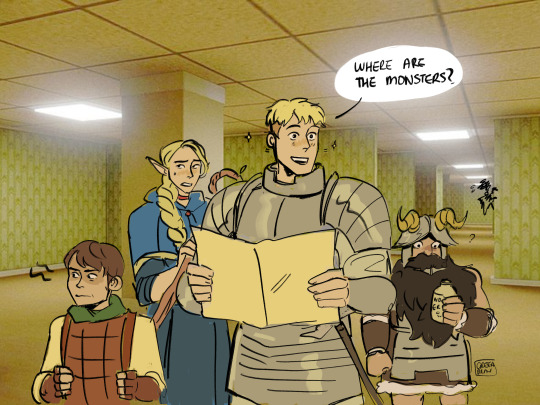
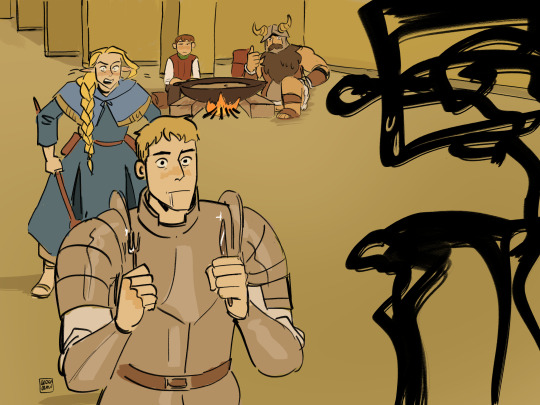
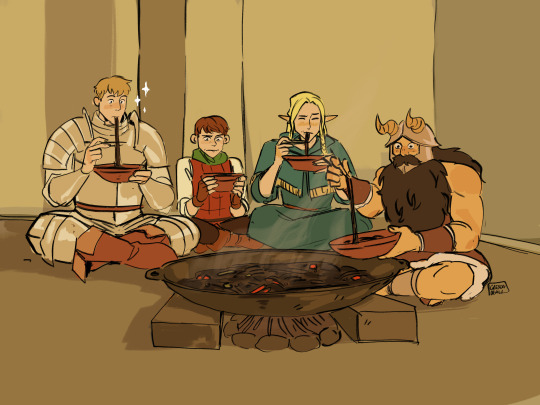
dungeon meshi but they end up in the back rooms, a cursed idea that was eating away at my brain
123K notes
·
View notes
Text

Shit man, this wizard war is fucked. I just saw a guy clap his hands together and say "the ten hells" or some similar shit, and every one around him turned inside out, had their tibia explode and then disappeared. The camera didn't even go onto him, that's how common shit like this is. My ass is casting frostbite and level 2 poison. I think I just heard "power word:scrunch" two groups over. I gotta get the fuck outta here.
142K notes
·
View notes
Text
The following is not my idea; it was the original brainchild of a friend of mine named Omicron, with help from various others including EarthScorpion, TenfoldShields, @havocfett and ShintheNinja:
So, you know what I want to do one day? Run (or play in) a D&D campaign in which the Big Bad Super Dragon that is fuckoff ancient and unfathomably powerful and whose actions have shaped history and bent the course of nations and had repercussions on the whole culture and society in the region where it's set; the Bonus Special Boss for some endgame optional quest after you defeat the direct BBEG and win the campaign...
... is a white dragon.
To explain this for people not deep into 5e monster lore; D&D dragons are sapient beings, and known for their instincts and tendencies, and whenever you meet an big evil dragon that's really old it's usually this ancient creature of terrible intellect Smaug-ing it up all over the place.
Except white dragons are fucking stupid. Like, they're still capable of speech and thought! They're just… feral, hungry morons. And you almost never see them portrayed as ancient wyrms for that reason; they lack majesty. Critical Role did it, yes, but even then, Vorugal is explicitly the most bestial member of the Chroma Conclave, and the others are the more intelligent planners and long-term threats. An ancient white as a nation-defining endboss, though; not a thug for a smarter master but as the strongest and biggest threat around is just not the sort of thing you tend to see.
Adventurers: "Oh wise Therunax the Munificent, gold dragon of Law and Good, what can you tell us adventurers of the evil dragons which rule this land?" Therunax the Munificent, 500-year old Gold Dragon: "Good adventurers, know this: this land is torn apart by the evil of Tiamat's spawn. The eastern marches are the dwelling of Furinar the Plague-Bringer, black dragoness whose hoard is a thousand sicknesses contained in the body of her tributes. The southern volcanic mountains are the roosting of Angrar the Wrathful, the fiery red dragon, who brings magmatic fury on all who do not worship him. And the northern peaks are home to Face-Biter Mike, the oldest and most powerful of all, of whom I dread to speak." Adventurers: "F-Face-Biter Mike???" Therunax: "Oh yes, verily indeed; two thousand years has Mike lived, and his eyes have seen the rise and fall of five empires, and a hundred and score champions have sought to slay him; and each and every one he bit their fucking face off."
Like... I want to see a campaign where Face-Biter Mike is genuinely the most powerful dragon in the region, if not the entire world. Where sometimes he descends on a city to grab himself some meatsicles and causes a localised ice age by the beat of his vast wings and the frigid wastes of his mighty breath and by the chill his mere presence brings to everything for miles around him, and everyone just has to deal with that for the next decade. An entire era of civilization comes to an end, an empire falls, tens of thousands starve in the winter, all because Mike wanted a snack. Where his hoard is an unfathomably vast mass of jewels and artefacts and precious stones frozen in an unmelting glacier, except he is a nouveau riche idiot with fuckall appraising skill, so half of his hoard is coloured glass or worthless knicknacks, and he doesn't give a shit.
"Your Draconic Majesty, this crown is… It's pyrite." "Yeah, well, it's brighter than this dusty old thing made out of real gold, it's my new best treasure. Throw the other one away." "…throw the Burnished Tiara of Bahamut, forged in the First Age of Man, your majesty???" "See? I can't even remember its fucking name." "But my lord-" "DO YOU WANT TO BE A MEATSICLE" "…I will fetch a trash bag, your majesty."
But at the same time, he's not stupid, he's just simple, and in some ways that makes him more dangerous than the usual kinds of scheming Big Bad you see in these things, while simultaneously justifying why Orcus remains on his throne (because he's lazy). Face-Biter Mike doesn't make convoluted plans or run labyrinthine schemes; he just has a talent for violence and a pragmatic, straightforward approach to turning any kind of problem he struggles with into a problem that can be resolved with violence. Face-Biter Mike has one talent and it's horrifying physical power, so his approach to any complicated problem is "how do I turn this into a situation where I can fly down and bite this dude's face off?" with absolutely no regard for the collateral damage or consequences of doing so, because those are also things he can turn into face-bitable problems.
"My lord, the dread necromancer Nikodemion is using his undead dragons to attempt a conquest of the eastern kingdom; his agents are everywhere, his plans are centuries in the making, what can we do against such a mastermind?" "I'm gonna fly over the capital and eat the eastern king." "M-my lord???" "The kingdom will collapse without leadership, Nikodemion will win his war, he'll take the capital and crown himself king." "And that helps us… how?" "Once he does I'll fly over to the capital and eat him." "…" "This is why you advisors all suck. You're all about convoluted plans when the only thing I need to win is know where my enemy is so I can fly down there and eat him. Stop overthinking things."
And, like, yeah, it's a simplistic plan, but when you're several hundred tons of nigh invincible magical death, you don't need brilliant strategy; the smartest way to win a war is, in this case, the simplest. He's not even all that clever at figuring out the consequences of face-biting, he's just memorised the common consequences of doing so.
(If you want to go all in on Mike being the major mover and shaker in the region; Nikodemion only even has a pet zombie dragon because Mike killed the last dragon to show up and contest his turf but wasn't going to eat a whole dragon by himself. Nikodemion got to stick around and amass that much power because Mike ate the Hero of the Realm while he was adventuring because he figured the Hero would come and try to slay him at some point. Nikodemion got started because Mike ate half the leadership of the Academy of High Magic who typically keep evil wizards and necromancers in check. And then eventually this product of Mike's casual, careless actions becomes a big enough problem to bother Mike personally, at which point Mike eats him too.)
He doesn't even really fail upwards, either! He is regularly reduced to nothing but the glacier he stores his hoard in, but he's Face-Biter Mike so nobody wants to commit to actually ending him forever lest they get their faces bitten the fuck off. And his hoard's in a huge-ass magical glacier so nobody can get to it without running into the Invading Russia problem; it's hard to wage war when everything is frozen over and you're both starving and freezing to death. Once he's been beaten back to his central lair and has lost all his holdings… I mean, he's still a problem, but he's a far away problem. So he loses his assets and spends a decade in a cave brooding it up while no one dares risk trying to actually kill him, and then a generation or two later he flies down to a kobold colony and gets himself some minions, or a dragon-worshipping mage comes to offer his service against a pittance from his hoard, or a particularly stupid cult starts thinking they can get in good with him and leech off his power, and then he's (hah) snowballing again.
He's also got a very… well, the kind of weird Charisma that Grineer bosses do. Like Sargas Ruk, who's a malformed idiot, but oddly charismatic. As he's a dragon, that makes him a natural sorcerer and thus Charisma is all he needs. He's pretty relaxed when he isn't in a face-biting mood, and he's kind of infectiously optimistic, because his life has taught him that he will succeed as long as he perseveres. So he just believes it.
And sometimes that's really refreshing to work for, as an evil minion of darkness! It's like, you're coming to your Evil Dragon Lord with terrible news; you've worked for evil overlords before, you know how it goes. You fall to your knees weeping and tell him that you've failed to seize the incredibly powerful magical artifact, you think your life is forfeit. And he's just like "Eh, it's okay, these things are all over the place. Better luck next time. You remember the guy who took it, right?" and you go "Y-yes, oh great lord!" and he's like "Sweet tell me his name later and I'll grab it" and then eats a frozen adventurer he kept around as a snack.
His followers tend to quickly realise that if they fail him, bringing some temple's silver or a sack of brightly coloured beads or a couple of dead cows means he's super forgiving because at least he's got something out of the day. "Oh boy, cows? It's been forever since I had those, ever since the Orc Steppe Nomads took over it's all about goats and onions. Today is a good day." He's a master of delegation by dragon standards, in that he just tells you "Just go get it done, I don't care how" rather than micromanaging you and constantly appearing as an image in smoke or taking over your campfire.
The key part of Face-Biter Mike as a threat to players (because he exists in the context of a D&D campaign) works well in that you can rely on several known quantities:
He will not pull sneaky shit that you don't see coming
He will not make convoluted plans that you must work to unravel
He will consistently attempt to come down and wreck you personally if he finds the opportunity and you are a threat to him
You cannot fight him head-on (at least not until the last leg of the campaign, and ideally as an optional boss rather than mandatory)
So as long as you are good at staying under the radar, thwarting his minions (whom he gives broad orders to with almost zero oversight) and not putting yourself in face-biting range, you can deal with him. If you succeed, it won't be the first time Mike has lost his assets and had to go brood in his glacier for a decade or two before rebuilding. It happens; he can deal with it. And that's a win for you within the context of a single campaign, so take the win.
And if you're not going to use him as an enemy, he works pretty well as a quest-giver, too! The costs for failure are obvious and straightforward, and "do whatever, just get me mine" means that players have a lot of freedom in accomplishing their goals. As far as evil overlords go he is actually one of the least dangerous to work for; his pride is relatively subdued by draconic standards, his goals are simple and typically achievable, and he is easily pleased.
(There's also a good chance he is the forefather of any draconic sorcerer in your party, because Face Biter Mike is a deadbeat dad.)
2K notes
·
View notes
Text
Wait this is news? The point of the "Justice" system is to maintain public order. Actual justice was not at any point the goal.
criminal profiling is just astrology for cops
144K notes
·
View notes
Text
There was a young man from Peru
Whose limericks stopped at line two
131K notes
·
View notes
Text
Cool of you to tag me, but that isn't my writing. I wouldn't say a 20th level dungeon looks like anything in particular, because D&D and other dungeon-crawler RPGs offer a huge amount of variety. It may look like the bowels of the Nine Hells, it may look like the inside of a Flying Saucer, it may look like an Office Building.

What does a Level 20 adventure look like?
@scrollforinitiative asks the question.
5 notes
·
View notes
Text
Scale is hard to grasp, yes. Cf. Any sci fi
80K notes
·
View notes
Text
The world is cruel but we carry on.
a hypothetical d&d party
The bard is mute.
It’s not the first thing people notice about her, usually. The first thing is generally that she’s young, and female, and lovely–the first thing people notice about their entire party is that they’re all young, and female, and lovely, and that’s gotten more than one would-be thief or mugger in far over their head when they haven’t noticed the the paladin’s hammer or the ranger’s axe. It comes up rather quickly though, often enough. Whoever heard of a bard who can’t sing?
She plays a lute, mostly, or a lap-harp made of shell and sinew, string instruments she can pluck while she smiles in secret and watches everyone around her. She dances quick, except when she’s tired, when she’s scared, when she forgets to remember the feet at the ends of her legs.
She doesn’t tell her story to strangers, but enough of the other girls have learned to sign by now, and it’s easy enough to sketch out the outlines of the old bargain: the voice, the prince, the witch, the thousand shards of glass she walked upon on her way up the beach, the look in her sea-green eyes when they travel too near water. The thousand shards of glass she walked upon when she left the palace, and turned back towards the sea to throw herself upon the rocks, and then made her way up the road inland, and kept walking.
.
The warlock is beautiful and mild and self-effacing and shy, is tidy and generous and charming. She’s small with herself in exactly the right way to shout abuse to the half of her party who knows how to recognize that same look in the mirror in the morning. The bird on her shoulder is too small, too bright, too sweet for a real warlock’s familiar. The knife at her belt is sharp enough for anything that needs doing, though, cooking or otherwise.
Her fae patron visits sometimes, in the quiet hours between dusk and midnight, a sweetly old godmother made of moonlight and shadow. She’s kind to the whole lot of them in her own chaotic way, free-handed with transmutations and illusions that break halfway through the evening, for better or worse. She once spent three hours around their campfire drinking brandy and gossipping outrageously about the Feywild and teasing the wizard into fits of laughter.
She’s never told the story of how she met the warlock’s mother, or what debt was owed there, and the warlock doesn’t know herself. It was never meant to be a debt paid in power and violence and the deft will-sapping enchantments the warlock weaves now, but, well. The prince wasn’t meant to be cruel, the warlock says. The palace was meant to be warmer than the fireplace cinders in her stepmother’s house. The faerie was meant to be saving her from her lot, not throwing her into something worse. The power’s an apology of sorts.
.
The wizard is awkward and joyful and nervous. She has no fear of heights or small places, which just stands to be expected, she says, after all those years in that little tower, and she’s got no skill at lying or even edging around the truth at all, which is why she isn’t in the tower any more in the first place. She says too much or too little or the wrong thing entirely, always, but the most well-socialized member of the whole party is the ranger who walks around with a dire wolf at her hip, or maybe their mute bard, so who are any of them to judge.
There was nothing to do in that tower but read, and brush her hair, and sort through the witch’s endless stockpile of dried herbs and potions ingredients, and watch out the window as woodcutters and hunters and princes rode by, and dream. The reading was more interesting than the dreaming, most of the time, and the witch didn’t mind it as much when she talked about it. She never bothered to actually use any of the magic in the witch’s books until the thing with the prince and the haircut and the desert, which she’s told them all about in all the detail they could ever ask for, but most of the girls get uncomfortable when she starts talking about princes. It’s a little easier if she just starts rambling about conjuration and abjuration and illusion theory, about the 400-year-old history of a city that doesn’t exist any more, about the proper grammatical structure of Celestial, until maybe one of the quiet ones finally answers back.
Her hair is too short. She keeps an illusion up over it whenever she can, while it grows back slowly, tickling the side of her face and the back of her neck and leaving her head too light and unbalanced.
.
The ranger doesn’t care about princes, which makes one of them at least. Then again, the ranger doesn’t trust anyone, really, prince or no, not wolves or monsters or the men who kill them. She more or less trusts the rest of them by now, mostly, when the wind blows in the right direction.
She wears bright red in the middle of the woods and it shouldn’t help her slip into the shadows half as easily as it does, but most beasts can’t see color and red’s just another shade of gray if the light’s low enough. She never uses her axe against trees. She doesn’t need to. She can find a path through any brush without it. She picks flowers when she finds them, and tucks them into the other girls’ hair.
Her wolf’s mother killed the man who taught her to use the axe, and the man who taught her to use the axe killed that wolf’s mate before that, and the mate had an old woman’s blood on his teeth when it happened. The ranger’s blade found the wolf’s mother’s throat. The ranger’s mother sent her out into the woods in the first place. It’s not as though anywhere is really safe, cottage or forest, axe or teeth. One of these days maybe her wolf will turn and go for her in return, and maybe one of these days her axe will be faster and maybe it won’t. In the mean time, there’s flowers and berries and pastries and enough game to keep everyone sated, for a little while.
.
The paladin’s hair is raven black and her skin is chalky as a corpse. She’s not undead, mostly. The undead are her job. She knows that much.
She was sweet, once (they were all sweet, once) but apples are bitter now and so is she, and there’s judgment to lay out in the world. Her grip on her warhammer’s all wrong–she holds it like a mining hammer, but it hits as hard as it needs to. Her armor’s all dwarven make, and her shield’s black and red and white like snow.
She was sweet once, and frightened, and when she says it quietly around the campfire in the night when none of them can quite make out the glimmer of understanding on each others’ faces, everyone still nods. She took a bite of poison and somebody left her a full year in a glass coffin of Gentle Repose, dangling on the edge of the Raven Queen’s domain while all the other newly-arrived dead passed by and faded away. She woke up to somebody’s lips and hands and skin on her lips and her hands and her skin. She doesn’t like princes. She doesn’t like necromancers.
She likes sunlight, and summer, and colors that aren’t black and white and red. She likes the way the bard grins when she whirls into a dance, and the look in the warlock’s eye when she sets her feet to say no, and the wizard’s laughter on high with a Fly spell, and the ranger’s gentle fingers braiding flowers into everything she can touch.
42K notes
·
View notes
Text
Headcanon acquired
Catwoman: [flirting while wearing a backpack full of stolen art] always a pleasure to see you Batman
Batman: I know you robbed the exhibit. Put it back
Catwoman: [pretends to think it over] you know… I don’t think I will.
Batman: fine. Just one thing before you go.
Batman: [steps aside to show Robin (Dick Grayson), 8 years old] this is Robin
Batman: he’s been asking me to go to the exhibit since it opened but I haven’t had the time
Batman: I finally had some time off this weekend, so we were going to attend on Saturday.
Batman: he hasn’t spoken of anything else all week.
Robin: [blinks sadly]
Catwoman:
Batman:
Catwoman: [wavering] I’m not going to just-
Robin: [in a watery voice] it was all I wanted for my birthday
Catwoman: [throws her hands up] FINE I’LL PUT IT BACK
14K notes
·
View notes
Photo
So are they worried for Anya, or for what trouble Anya is causing?
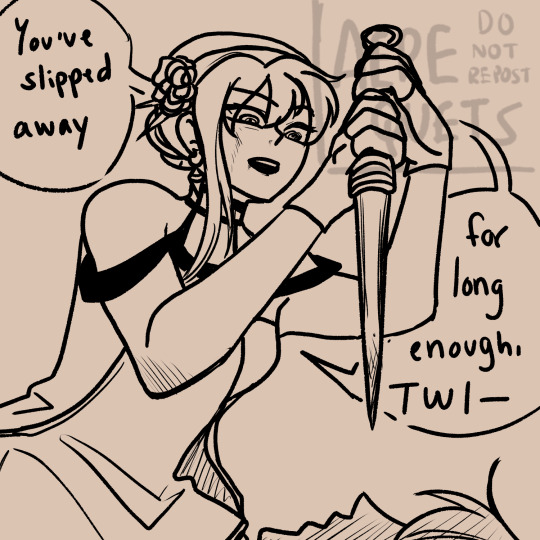
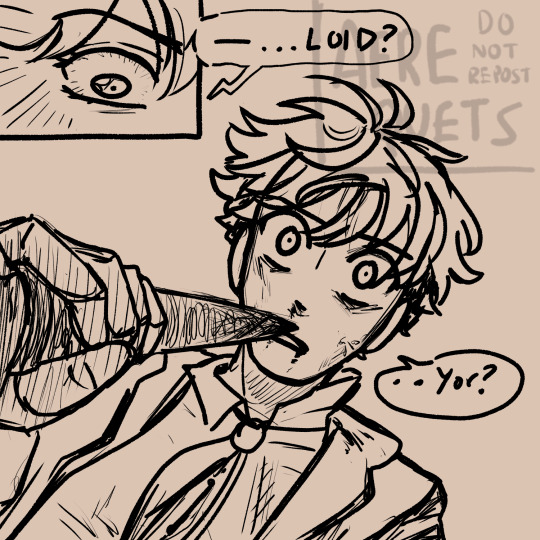
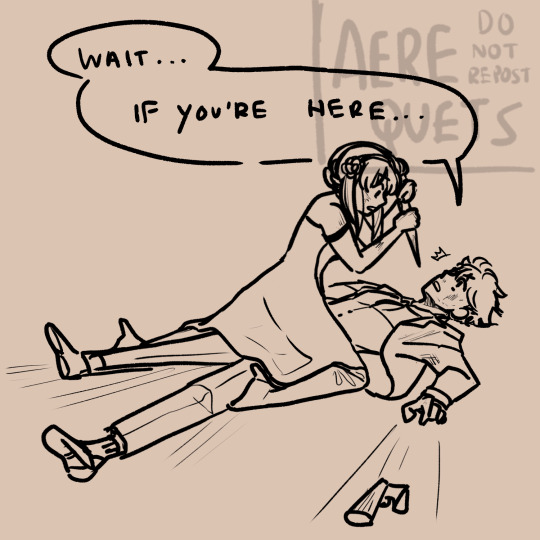
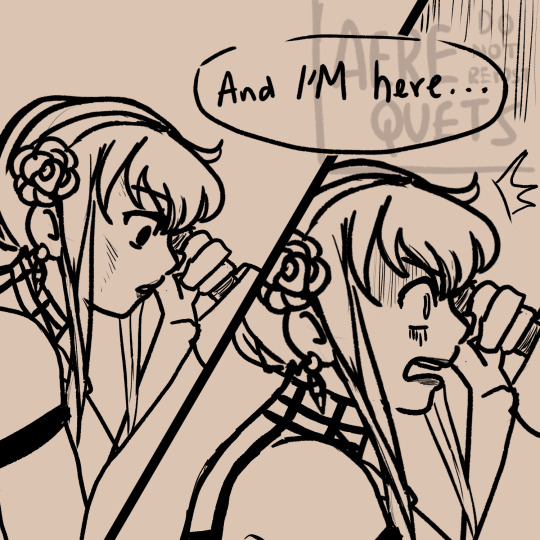
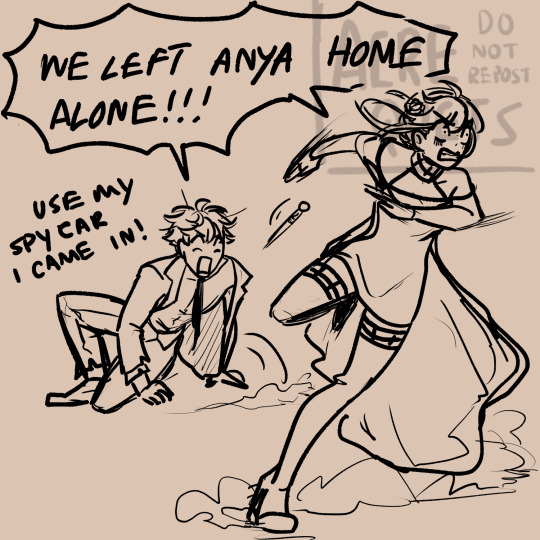
i cant remember/find the post, but there was one that was like “dramatic twiyor reveal except they instantly freak out about leaving anya alone” and. yeah. i agree
94K notes
·
View notes
Text
Hey anyone want to play a game in the famous City Built Around the Tarrasque?
I love the idea of dead gods. Not in the sense of “hey i killed something supernaturally strong” but in the sense of “i killed it and it’s still a god.” It is still worshipped. prayers are still answered. miracles are performed in its name, even as it lies pierced by a thousand swords and burning with chemical fire. even as it drifts through vacuum, decapitated and bleeding molten rock. in cosmic spite of being shot through each eye and hurled into a plasma reactor, it still radiates the power of the divine in a way that primitive death cannot smother. the nature of godchild is not so simple as to be tied to the mortality, or immortality, of any living being.
105K notes
·
View notes
Text
Storytelling is praxis
Every Version of that Chesterton Quotation about Fairy Tales and Slaying Dragons
Fairy tales do not give the child his first idea of bogey. What fairy tales give the child is his first clear idea of the possible defeat of bogey. The baby has known the dragon intimately ever since he had an imagination. What the fairy tale provides for him is a St. George to kill the dragon.
~ G.K. Chesterton, writing the original lines, in Tremendous Trifles, Book XVII: The Red Angel (1909) ________________________
One of the great popular novelists of the early part of this century was G.K. Chesterton. Writing at a time when fairy tales were under attack for pretty much the same reason as books can now be covertly banned in some schools because they have the word ‘witch’ in the title, he said: “The objection to fairy stories is that they tell children there are dragons. But children have always known there are dragons. Fairy stories tell children that dragons can be killed.”
~ Terry Pratchett — getting the spirit of it right, but technically misquoting Chesterton — in When the Children Read Fantasy, published in SF2 Concatenation (1994) ________________________
“Fairy tales are more than true – not because they tell us dragons exist, but because they tell us dragons can be beaten.” - G.K. Chesterton, writer
~ Neil Gaiman (neil-gaiman) — getting the spirit of it right, but technically misquoting Chesterton — in Coraline (2002)
As Gaiman explains:
It’s my fault. When I started writing Coraline, I wrote my version of the quote [from] Tremendous Trifles, meaning to go back later and find the actual quote, as I didn’t own the book, and this was before the Internet. And then ten years went by before I finished the book, and in the meantime I had completely forgotten that the Chesterton quote was mine and not his.
________________________
G.K. Chesterton wrote, “Fairy tales do not tell children dragons exist. Children already know the dragons exist. Fairy tales tell children the dragons can be killed.”
~ Andi Bushell — getting the spirit of it right, but technically misquoting Chesterton — in Criminal Minds; Season 3, Episode 5, Seven Seconds (October 24th, 2007) ________________________
2K notes
·
View notes
Text
I am unironically hyped for this.
I really want to apologies in advance for the person I'll become when this comes out. Going to be a bigger pain in the a**, I'm sorry guys
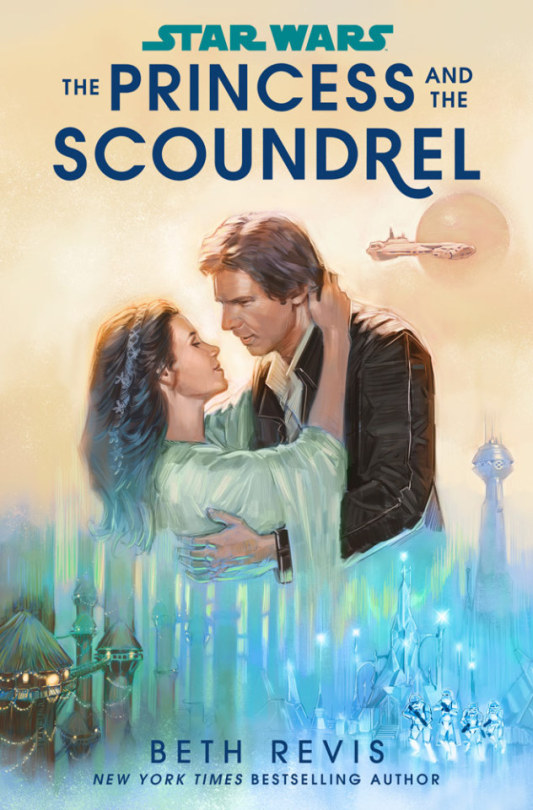
29 notes
·
View notes
Video
tumblr

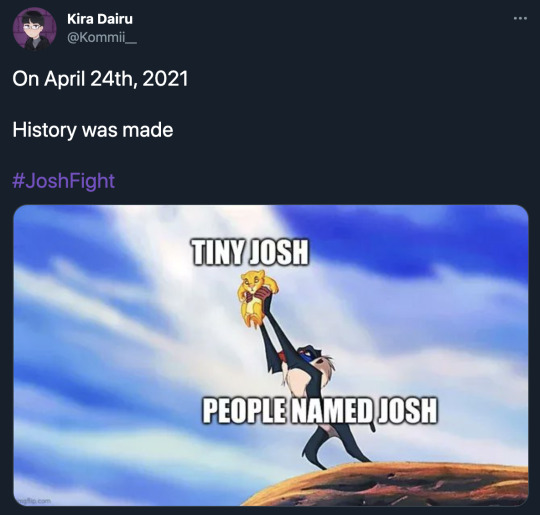

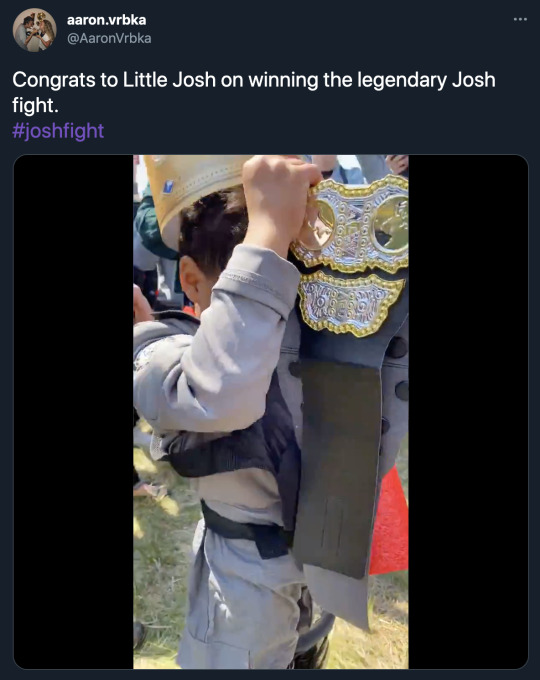
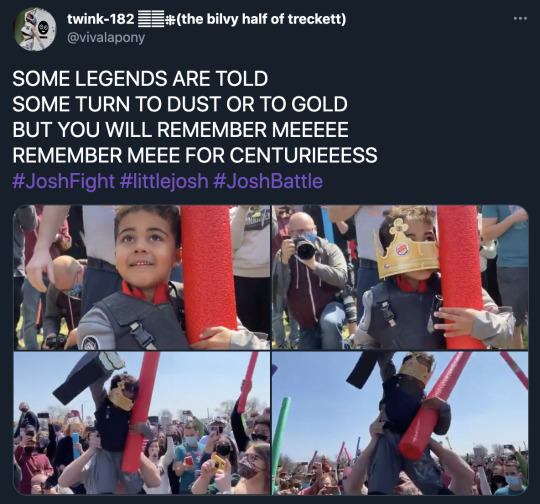


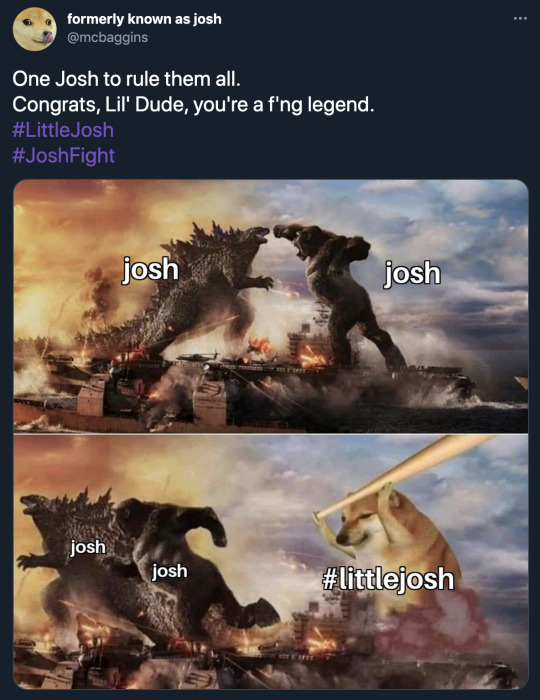
(x) (x) (x) (x) (x) (x) (x) (x) (x)
60K notes
·
View notes
Text
This sounds hilarious
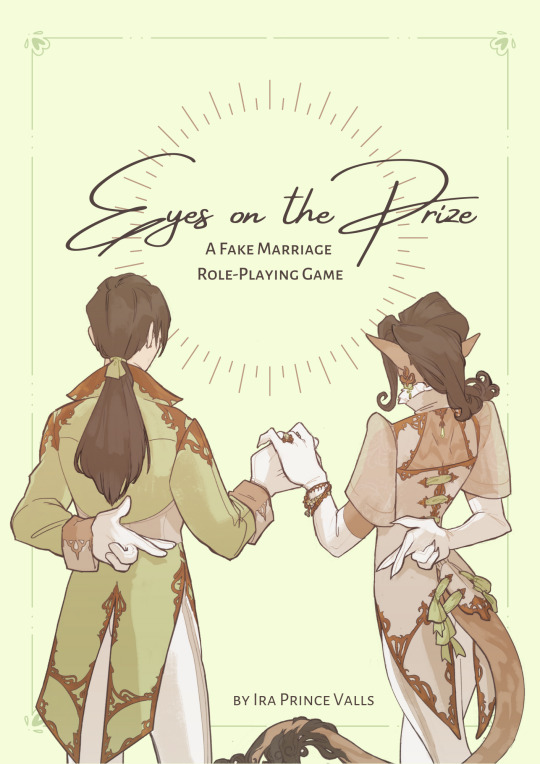
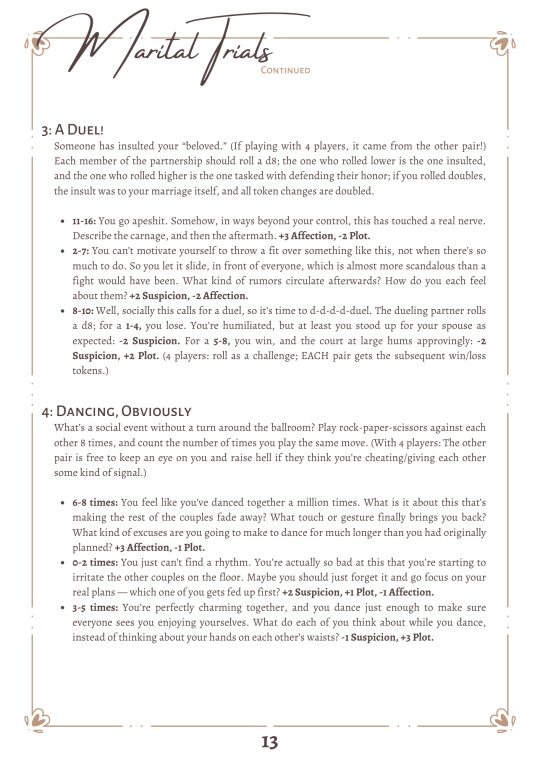
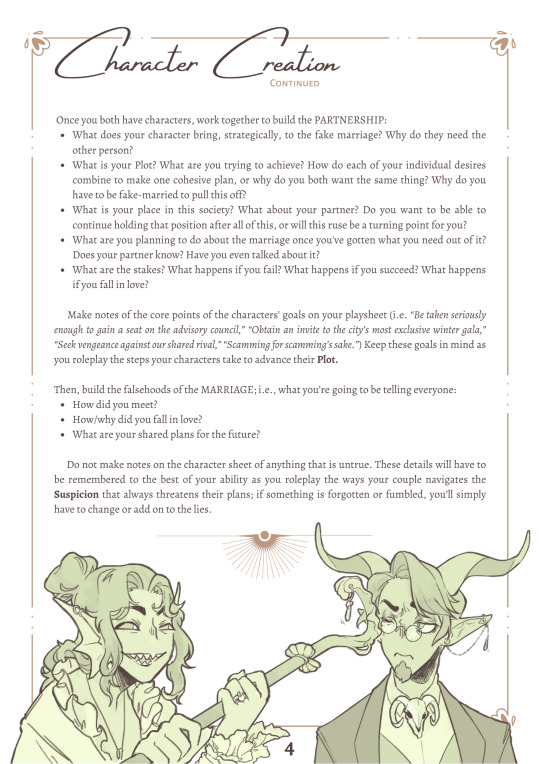
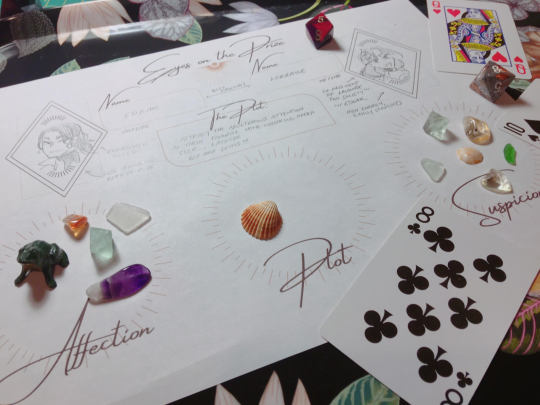
hi! i just published my first ever ttrpg, EYES ON THE PRIZE!
dream up a fake-married couple, wield their fraudulent union to achieve your shared goals, and do your best not to blow your cover -- or fall in love for real. for 2 or 4 players (1 or 2 pairs), played with 8-sided dice and standard playing cards.
thank you so much for checking this out, i'm so so excited to share it!
9K notes
·
View notes
Text
Xeph Videogame Consoles have DDR pads by default instead of hand controllers.
Elf video games: 300 hour jrpgs with legions of characters and several novels worth of text. Labrynthine upgrade trees and customization options. The most insufferably unintuitive UI possible. A single turn based battle can take hours. Every character has an ennui stat.
Dwarf video games: Basebuilding strategy FPSs that has a whole wiki page on the flexile vs tensile strengths of different building materials. Dwarven rhythm games have minigames where you have to manage supply lines. Mortals cannot comprehend dwarven grand strategy games.
Halfling video games: What appears on the surface to be a viscerally calming farming sim is actually an extraordinarily complex social combat game about cutthroat HOA politics.
Goblin video games: Wildly unbalanced collectathon gatchas where half the fun is finding new hilariously broken strategies. Zany uberviolent team shooters about bugs. MOBAs so bad it's almost art.
Orc video games: Addictive in-browser flash games with names like "Beast Crush 4" and "Borag Meat Game." The art is always kinda bad but in a charming way. The music always slaps.
67K notes
·
View notes